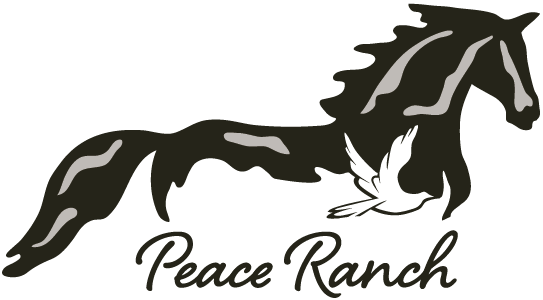
Our Founding
Paraklesis Inc was founded in 1990 using a ministry model. A "ministry model" focuses primarily on serving a community or cause with a spiritual or charitable purpose, often without the goal of generating profit, while a "for-profit" model aims to generate financial gain through selling products or services to customers, with profit as the primary objective; essentially, a ministry prioritizes impact and service while a for-profit business prioritizes financial return.
The organization’s founders were Pastoral Counselors with a heart for family and healthy growth in people’s lives. For many years the organization served primarily people of faith through Forest Lakes Counseling. In 2010, the organization expanded to bring the peace of Christ to people suffering from the impact of trauma. “Taste and see that the Lord is good” Peace Ranch was to be a first taste of goodness which came through a ministry that brought hope and healing.
The Peace Ranch concept was ahead of it’s time and over the course of a decade went from being the ‘crazy horse thing’ to the cutting edge of neuroscience. The services offered positively impacted the lives of young children and hardened Veterans so significantly that, after years of dysfunction, they were able to return to healthy living.
Clients were seen by a team including a mental health clinician and equine professional and horse or horses. Sessions were generally held outdoors in the pasture and were completely driven by the client’s need- regardless of what their file said. Sessions were started the with no agenda except to follow the client and listen to the horses. The horses employed in the work had been victims of trauma as well but had overcome to the extent that they were safe to be near and would reliably move away if uncomfortable.
Why horses? The Founders had experienced the amazing impact the horses had on their own (adopted) traumatized children. Their struggles with basic self-management skills were significantly improved through their motivation to touch, be with, and ride the horses. Horses are prey animals and humans are predators (in the animal kingdom). To connect with the horse, the human must manage thoughts, feelings, and actions. If a person approaches with anger or agitation, the horse becomes nervous or scared. When the horse is uncomfortable it responds through its movements thereby making emotion very visible. This helped the children read the ques and were motivated by a desire to connect, recognize and manage their emotions. These experiences over several years became the inspiration for the development of Peace Ranch.
In keeping with the core values of Paraklesis, services were to be provided to all in need regardless of ability to pay. With this in mind the following document was created.
Our Vision is to create a PEACE-ful therapeutic center, a community dedicated to cultivating growth, learning, and rehabilitation for ill or suffering horses and humans that they may turn or return to productive living.
Our Mission is to provide Professional Equine Assisted Counseling & Education (PEACE) for all in need regardless of ability to pay assisted by our herd in process of recovery.
In order to achieve our mission and vision we embrace these Core Values:
Professionalism: Our commitment to Quality
Staff & volunteer of the highest quality, trained, experienced and competent in their field.
P
Excellence: Our commitment to Integrity
Practices are ethical, consistent and congruent. All programs and methods are improved through assessment and refinement.
E
Affordability: Our commitment to Stewardship
Resources are used effectively and efficiently
A
Collaboration: Our commitment to Partnership
Our work is with others to realize shared goals.
C
Exemplifying the love and compassion of God in all we do to all we serve
Services for all without discrimination.
E

Operating Principles
-
Collaborative Service Model
Paraklesis provides a charitable, faith based umbrella via PEACE Ranch under which experiential therapy may be provided for the entire community. This endeavor requires a collaboration of people, services, and organizations to achieve our mission and vision.
-
Collaboration of People
We envision people working together to achieve common goals which include provision of Equine Assisted and other sensory oriented experiential therapies to meet community needs. This collaboration includes those who serve and those who are served by PEACE Ranch, including both volunteers and clients.
-
Collaboration of Services
We envision bringing together a broad spectrum of clinical, experiential, sensory oriented therapies at one center, provided by qualified professionals, supported by dedicated volunteers, committed to the PEACE Ranch mission, vision, and core values.
-
Collaboration of Organizations
We envision Grand Traverse area service, municipal, and educational organizations (hereafter referred to as “community stakeholders”) utilizing the services offered at PEACE Ranch in collaboration with certified Clinicians and Equine Specialists to improve services and communication among service providers, thus creating a better system of care.
Operational Model
An endeavor of this magnitude requires extensive planning and resources. The plan is to build the organization to a point where it is self-sustaining while adhering to our core values. This means keeping overhead as low as possible so that fees for services can be kept at a reasonable rate for our clients and collaborating community partners. PEACE Ranch has operated frugally, dependent on its benefactors for major resources including land, horses, program development and overall management and will continue to do so toward sustainability.
Volunteer Model
PEACE Ranch has a growing volunteer force, ranging in ability and experience, who are willing to donate a great deal of time and expertise to help with all aspects of programs and general organizational coordination. In order to be successful with such a broad range of people, we are developing and implementing volunteer orientation, training and assessment for all manner of volunteerism.





